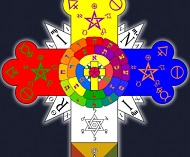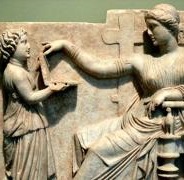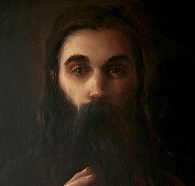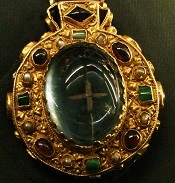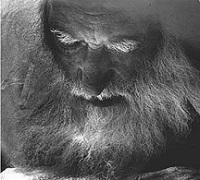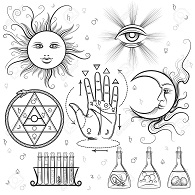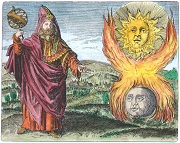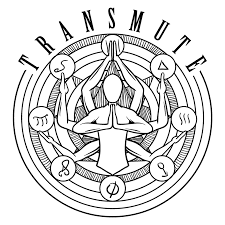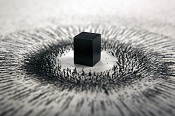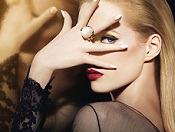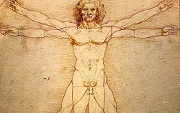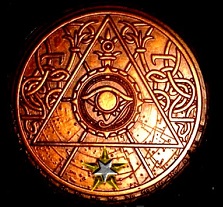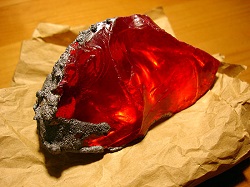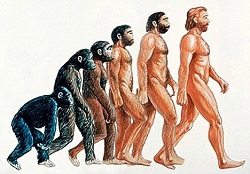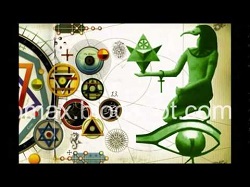The subtleties of vanity (By Richard Ingalese)
Vanity is a characteristic of the animal nature and did not belong, originally, to the subjective
mind. When the Sons of God came to earth they had no vanity. In the Arcadian lives that they
had lived, upon the Moon, each looked like the others; and, since they had never made an effort
to live, they had no ideas of individual superiority. They had no consciousness of the need of
individual possessions, and, therefore, knew not the difference between ^'mine and thine."
But, with the animal minds, whom they espoused, it was different; for, with them, the struggle, first, for communal possessions, and later, for individual possessions, had been in progress since the time the ants learned that a few members of their community had accomphished more work, had contributed more food and had laid more eggs, in their particular nest, than had some of the others. And then was born a communal appreciation that caused the more ambitious ants to build a new hill, or nest, and leave the less active, less competent members of their swarm behind.
In their next state of consciousness, as honey bees, the same spirit of communal appreciation
manifested again. When their hives, or hollow trees, became overcrowded with drones that per-
sisted in living upon the production of the real workers, again they separated into two classes;
the appreciative bees left their old abiding place and secured a new one where they proceeded to
manifest their activities without the restraint imposed upon them by the drones.
When the communal consciousness became divided and merged into the lower animal consciousness, then communal appreciation disappeared and self-appreciation and self-reliance
began to manifest in the small animals. For example :
The almost human expression of self-reliance and self-appreciation on the face of the independent little squirrel, shows what he thinks of himself as he sits upon the limb of a tree, just outside his nest, and looks complacently down, from his elevated position, upon his inefficient brother squirrels who have procrastinated, with their opportunities, and are now frantically digging their nuts and acorns out of the snow ; while he has gathered his winter-store and has hidden it away.
And that self-appreciative, self-satisfied little scrap of individualized consciousness nibbles daintily at the nice fat acorn, he has selected from his supplies, while he indifferently waves his handsome tail above the unsuccessful little creatures below. Thus he manifests his selappreciation and self-reliance.

In the human baby, seL-reliance begins to manifest when it finds it can stand alone and
walk a few steps unsupported by its nurse. And, when it is old enough to begin to understand the
complimentary things said to, and about it ; when it has learned to know something of the meaning of the word ^* pretty," its little heart begins to swell with self-appreciation. And when it understands that it is **the prettiest, smartest, cutest child that ever lived," then vanity is born in the mind of the human baby.
There is a fine distinction between self -appreciation and vanity; and a close analysis is re-
quired to determine where self-appreciation ends and vanity begins. The Occultist says, self -ap
preciation comes as a result of self-reliance. When an animal, or a man, through effort, over-
comes obstacles and realizes his power, those two characteristics are necessary to the founding of
his character. But, when he begins to compare his appearance and his successes with the appear-
ance and successes of another, then vanity comes into his nature; and, while self-reliance and self-
appreciation are constructive to a good character, vanity, like a corrosive acid, destroys it.
Vanity is such a subtle emotion and appears in so many guises that many times men are de-
ceived by it. For it manifests, not only with regard to personal appearance, but with the men-
tal and spiritual perceptions of men and women. And when it has been eradicated from one form
of manifestation it often becomes strongly established in another. For example:
There was a man whom the world called a handsome, distinguished gentleman. He was edu-
cated and refined and held a prominent position in society. Friends, of both sexes, admired and
flattered him ; and he became so accustomed to receiving compliments he felt resentful to those who did not offer them. His affable, charming manner made him an agreeable companion and his real goodness of heart won the love of many persons who knew him well. He was an admirer of
beauty, and, because of the compliments continually received, became convinced that his taste,
regarding all things, was best. He compared his face and figure with those of other men, and
decided his admirers were right in their judgment, that he was the handsomest man he had
ever seen — and became satisfied with himself, as he was.
Because he believed he knew everything, that was necessary to know, and possessed everything,
that was necessary to have, he had no desire to learn anything more difficult than the latest
dances and the newest fashionable fads. In his estimation, he had reached perfected manhood
and there was nothing more for him to attain. And here his evolvement paused and trembled
in the balance, because his vanity told him there was nothing more for him to gain.
The years passed, and, as this man continued to live in the atmosphere of flattery, his vanity
became colossal and his friends called him Apollo, which pleased him greatly. But, suddenly a
change came into his life. He lost his fortune, and, soon afterward, met with a mishap which
temporarily disabled and permanently disfigured him.
His fashionable friends deserted and forgot him; and he was left alone to meditate upon his
new condition. He passed through the valley of the shadow of death and despair, and stopped
just this side of the great Divide. While he lay upon his bed of suffering and saw to what his
vanity had led him, he made a vow never again would he allow vanity to influence his thoughts
or acts; that he would crush it forever out of his consciousness.
In beginning life all over again, he selected the Law for his profession. He reasoned that this
would be the best profession for him, since beauty of face and form was not necessary to the win
ning of a verdict with a jury. He remembered that some of the brightest men on the Bench, and
at the Bar, were the ugliest, and then began his work in earnest.
He studied as diligently as he had danced and flirted and the results were not long in coming.
He became a counsellor at law whose opinion, upon legal questions, was eagerly sought. He
gained a power of eloquence that was irresistible, and, to secure him for an advocate, was almost a guarantee of winning a case. His fame spread throughout the country as a consequence.
But he never wore good clothes, was noted for his shabby, personal appearance and seemed to
take great pleasure in shocking his associates, and the public, by his untidiness and irregulari-
ties in dress. He rarely shaved, never combed his hair, at the back of his head, and permitted
it to fall over his forehead almost to his eyebrows. He became known as **Shagg}^ Jack,"
and gloried in this title, believing it and the irregularities of his dress were evidences that he
had destroyed, in himself, the last shred of vanity.
He was mistaken, however; his vanity had shifted its position from the physical to the
mental plane, of his consciousness, and was as firmly entrenched there as it had been on the
physical. For, in his position as counselor, when he now made a statement concerning a
point of law, that statement must stand, as he had made it. If he decided upon the guilt, or inno-
cence, of a client it did not matter what evidence where brought to prove facts to the contrary, he
refused to accept anything that disagreed with his decision, and fought determinedly to maintain
it.

He became bitter and unrelenting, in his egotism, and intolerant with everyone who differed
from him in opinion. His desire was to rule, or ruin, every person with whom he entered into
any form of relationship. And again he became retarded in his evolvement by the mental vanity
that blinded and made him believe the small elevation upon which he stood was the top of the
highest mountain peak of knowledge. Vanity had cast a curtain of fog before his mental vision
and he could see nothing above and beyond himself; and again he believed there was nothing
more to strive for, nothing more to attain.
Another example of how that subtle emotion, vanity, deceives its possessor was manifested in
the case of a woman. She, also, had lost her fortune, her beauty and her social position. She
turned to the Church for consolation and became a religious fanatic. After studying the Bible, the
Catechism and the lives of all the Saints and Martyrs, she decided to follow in their footsteps.
Because she had accepted the King James version of the Scriptures, for her life guide, she be-
lieved it to be the only guide for anyone to follow. She accepted the fallacy, for a truth, that
every human soul had been lost who had passed from physical life without the knowledge and
belief that Jesus of Nazareth came into the world to save sinners. She thought she knew that every
soul, who would pass out of material expression without that same knowledge and belief, must
meet the same fate of the unfortunates of the past.
In her desire for a broader field for her Christian labors, she left her helpless old mother to
be cared for by the county, sent her son and daughter to live with relatives, who grudgingly
accepted them as encumbrances, and sailed for the Orient. There, among people whom she
called heathen, because they had not her religious belief, she settled herself to the self-imposed task of saving souls from everlasting punishment.
A few women, of the lower classes, were willing to be taught sewing and fancy work; but not
one individual did she find who accepted her religious views — ^because they all believed they had better ones.
For years the spiritual vanity of that woman kept her blinded to the fact that she was doing a
mistaken duty; and, instead, made her believe that her work, among the so-called heathen, would
bring her close to God; and that, in return for her efforts, she would be given an exalted place
in heaven among the Saints and Martyrs.
Her vanity showed her the alluring mental picture of herself clasped in the arms of Jesus,
while other less fortunate souls looked enviously at her in that blest exclusiveness. It never
occurred to her simple mind, that there were thousands of other fanatics in the world who
expect to lie in the arms of Jesus, when their life struggles are ended; and if she had thought
of it, her vanity would have told her that she would be the favored one, above all others, to
win that happiness.
After years of hard work, disappointment, privation and constant prayer this victim, of spirit-
ual vanity, died alone in a little hut; but, before she passed on, she wrote to her family and told
them that, although she had not saved any souls, there, her life had been a sanctified one and she
was glad to die a martyr to her faith. That her one regret was that death could not come to her
through burning at the stake as it had to many other martyrs. That if she had a thousand lives
she would gladly give them all for her faith; that she was going to Heaven where she would
be perfectly happy, notwithstanding the fact that nearly all the people in the world were going- to
be lost. And that woman believed that vanity had died out of her soul when she lost her beauty.

From an evolutionary standpoint her whole life had been a failure. She had gained nothing
and had not the satisfaction of converting one soul to her faith. But she had neglected her
filial and maternal duties, also her social and civic duties. She had helped no one, and her own
mental and spiritual development had been narrowed and restricted by her vain belief that she
was right and that everyone, who did not agree with her, was wrong.
There are the egotistical father and mother who believe they know best what their children
should do, or become, in the business and social world. Many ne'er-do-wells there are, who, be-
cause of the vanity of one or both parents, were forced to attempt to do the things they were not
fitted to do, and, therefore, became failures. It is a dangerous thing for a parent to decide, un-
equivocally, whether a son shall become a clergyman, or an artist. And it is a terrible offence
against the divine Law to force a child to give up its ideals, that came with it into this life, and
to compel it to undertake a lifework for which it has no sympathy.
The ideals, that a soul is born with, are the unfinished, mental creations of other lives, which
should be worked out in this life. Such ideals should not be neglected but should be brought
into material expression, as far as it is possible to do. And no parent, or friend, should dare to
interfere, or discourage another soul, in working out its destiny according to its ideals.
Parents should study the tastes of their children; should win their confidences and listen to
their aspirations. They should give them the freedom of their choice of a profession. Because
the father of a boy has been a successful blacksmith, he should not force the child, who loves
music and longs for an opportunity to study it, to spend his life at the anvil and forge.
Because a mother has been a society woman and cares for nothing but social functions, she
should not compel her daughter to spend her precious time in dressing and flirting, when she
hates such frivolities and longs to become a literatus. It is vanity that makes parents feel
that they always know what is best for their children to do; and it is vanity that makes a son,
or daughter, dictate to his, or her, parents how, or where, they shall live. Who is there in this
world, at this time, that is wise enough to direct another's life?
Among the most honorable titles that vanity masquerades under and one that gives it the
greatest distinction is ** Pride." Many persons scorn the thought that vanity influences them.
They believe it is pride that swells their heads and hearts when they think of their ancient
family names, ancestral abodes, heirlooms and traditions. The scornful superciUousness with
which they observe those who have not generations of noble (?) ancestry behind them is sup-
posed to be pride and not snobbish vanity.
Should the scion of an old family investigate the private lives of his ancestors, and living rela-
tives, and find no dishonor, to men, or women. attached to any of them, then the emotion he
feels for his family name is justified pride. But, even then it may be but an ephemeral honor,
since one dishonorable act of any one, bearing that name, would dishonor it and afterwards it
would be no better than any other name.
It has been said that ** pride goeth before a fall." But the Occultist says, is vanity that
goeth before a fall'; that pride is the outgrowth of virtue and that, without virtue, pride could
not exist. That it is a protector of virtue and that it makes its possessor not only avoid evil
doing but it also makes him avoid all appearances of evil doing.
It was the absence of vanity in the Nazarene's soul and the presence of pride in His own integ-
rity, that made Him say: "get thee behind me, Satan," when His lower animal mind suggested
that He fall from His exalted position, as teacher and helper of humanity, and become an Emperor
of the material cities of the world. In former lives the subjective mind of the Nazarene had
transmuted that basic emotion, vanity of personality, into the gold of spiritual understand-
ing and He had no vanity.
The emotion falsely called National Pride, on close examination, proves to be National Vanity
founded upon the self-reliance and self -appreciation of the individuals who compose that nation.
At the present status of humanity, National Pride is an effervescent dream since there is not
one nation upon earth that has reached a point, in its evolvement, where all the individuals who
compose it are honorahle with each other and with all other peoples.
It is vanity that makes the head of a nation insist upon forcing his personal opinions and
desires upon his people, because he thinks he knows what is best for them. He is a walking
vanity bag filled with political cosmetics which he wishes to use to cover his own political defects
and the political defects of his colleagues.
According to the standard of morality held to by the Occultist, it must be a New Nation born
in the coming New Day, that will be able to justly claim a National Pride, since each of the
nations of the past and present has been an example of, as Solomon said, ** vanity and vexation
of spirit."
You may be interested in our Lecture "To be or To have"
Reading Support:





